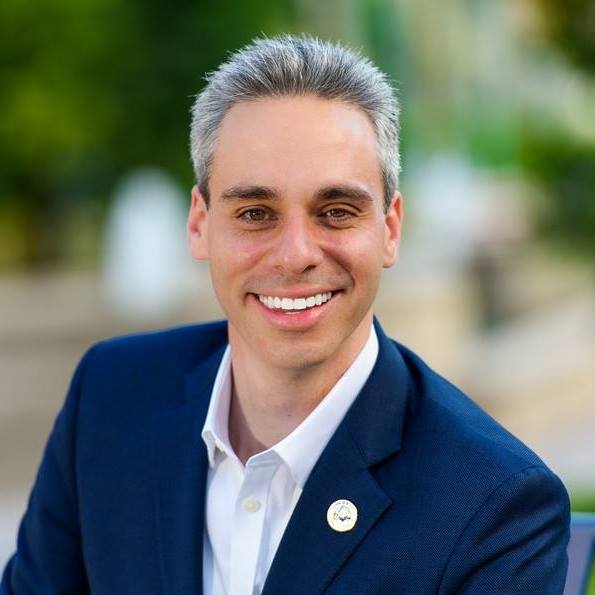As I reported last week, at tonight’s meeting the Boca Raton City Council will consider a “separation of employment agreement” with City Attorney Diana Frieser. The agreement would pay her nearly $548,000 to leave on Aug. 31, one year ahead of her mandatory retirement date.
For most of the 25 years that Frieser has held the job, she has enjoyed near-total support from successive councils. In June, however, Mayor Scott Singer and Councilman Andy Thomson raised questions about how Frieser is running the office that includes her and four other lawyers. They suggested changes. No one has said whether Frieser embraced them.
Singer asked City Manager George Brown to place the agreement on the agenda. Obviously, the first question is why Singer did so. In an email Sunday, Singer noted that at the meeting, “I said I thought it would be better to begin our transition” from Frieser. “This is the next meeting.”

The next question will be who calculated the payout of $547,995, as Frieser’s salary is about $327,000. And that question will lead to the key issue: the contract under which this proposed payout is based.
The story begins on June 28, 2011.
Like all cities, Boca Raton was emerging from the 2008-2009 financial crisis that drove down property values and thus revenue to local governments. Employees were not getting raises, and that held for Frieser and then-City Manager Leif Ahnell.
But the council did something else for them. It approved contracts stipulating that if Frieser or Ahnell was “terminated or forced to resign,” either would get five years’ salary. The amount would drop each month until the five-year period ended.
The contracts also said that from June 28, 2016 onward, Frieser and Ahnell would get a year’s worth of salary and benefits if fired or forced out. The council approved the contracts two days before a state law limiting severance to 20 weeks of pay took effect.
I watched the video of that meeting. There was no discussion about the terms of the contacts. No one asked who drew up the contracts. No one questioned the contracts. If anyone knew about the new state law, no one raised the issue. It was the usual lovefest between the council, Frieser and Ahnell.
The mayor at the time, Susan Whelchel, died in 2022. Mayors consult with the manager on the agenda. I expect that someone tonight will ask Frieser if she drew up that self-serving contract. Someone certainly should. An ethics complaint filed against her in 2014 over the contract was dismissed because the statute of limitations had expired.
For most of those first five years, the contracts essentially guaranteed Frieser and Ahnell their jobs, because removing them would have been so costly. Ahnell retired on Dec. 31, also after 25 years. Their tenures are especially long compared to those in other South Florida cities.
But council members had become increasingly impatient with Ahnell, who came to regard the mildest form of questioning as offensive. Similarly, Frieser to me has acted like a self-governing entity. It’s hard to get prompt answers to the simplest questions about legal issues.
During Monday’s council workshop meeting, Councilman Andy Thomson proposed delaying discussion of the agreement to have an outside lawyer review it. He got no support.
Whatever council members decide on the agreement—will a majority agree to pay her that much?—it’s hard to believe that they would let Frieser continue in her position after tonight. Ahead is a discussion on whether to continue with the current system of a staff attorney or contract with a private lawyer to serve as the city’s main lawyer. It’s a time of change at City Hall.
I’ll have more after the meeting.
A pay raise for City of Boca Raton’s law firm?
A related item on tonight’s agenda could become part of the discussion about Frieser.
She has proposed that the city raise the rate it pays the firm of Weiss Serota Helfman Cole & Bierman. The increase would be roughly 20%, to a high of $325 per hour for partners in certain cases and $295 per hour for associates.
Frieser notes that the higher rates would be “lower than the rates charged by the firm for other governmental clients.” She also said, “The firm has provided excellent legal services to the city” for 24 years.
Which happens to be the arc of Frieser’s career. Council members have complained, usually privately, about the seeming monopoly that Frieser has given the firm. There is talk that Frieser will join the firm after she leaves Boca Raton. After several key losses in court, some council members now may go public with requests to seek other firms.
The Weiss Serota item is on the consent agenda, which usually gets approved without comment. I would expect comment on this item.
A legislative assistant for Mayor Singer
Speaking of Singer, he has something no other Boca Raton mayor has had: a special legislative assistant.

That’s the title for Marisa Herman, a former reporter for the South Florida Sun Sentinel, who was hired in early June to fill a new position that the council approved along with two assistants for the council. Members of the current council have complained for two years about what they say are increasingly demanding schedules and workloads for what is technically a part-time job.
Though Herman reports to City Manager George Brown, and it was a collective staff decision to choose her, the job description makes clear her priority: the person “provides analytical, administrative and professional assistance to the mayor in support of their service to the City of Boca Raton. This is accomplished by being aware of political sensitivities when responding to inquiries and assisting with constituent concerns and communications.” All job functions relate to the mayor. Herman’s tenure will last only as long as Singer is in office, until March 2026.
The job description listed a salary range of between $60,000 and $100,000. Herman is being paid at the top end of that scale. The salary range for the council assistant is between $24 and $39 per hour, or between $51,000 and $89,000.
Singer said the mayor of Miami—a city which has a population almost five times larger than Boca Raton and also has a weak-mayor form of government—has 26 staffers attached to the mayor’s office. “I’m not proposing that,” he said, but he pointed to a series of upcoming events: a revamp of the zoning code, the city’s centennial, the potential for a public-private partnership to construct a new government complex around City Hall.
Singer also cited Boca Raton’s ongoing push for “economic development” and said that “smaller cities have more staff.” Singer noted that Herman covered Boca Raton and called the position a way for “constituents to be better served.”
Spanish River Park vying for Blue Flag

Delray Beach’s public beach received a Blue Flag designation in 2023 and repeated it this year. Boca Raton is trying to match it.
The city’s Spanish River Park beach is a candidate for Blue Flag recognition. The Copenhagen-based Foundation for Environmental Education recognizes beaches worldwide for being well-managed, having good water quality and being accessible.
Getting the distinction involves four steps. By becoming a candidate, Boca Raton has reached the second step. Moving up from here, according to a news release, “involves forming partnerships, participating in educational webinars and toolkits, and engaging in one-on-one meetings with Blue Flag staff to ensure continuous improvement.”
There is no timetable for when Boca Raton might achieve the designation.
The road to being a “Vision Zero” city
Also on the agenda for tonight’s meeting is approval of a contract with the consultant Kimley-Horn and Associates to develop a Vision Zero Action Plan.
In 2022, the council adopted a resolution designating Boca Raton as a Vision Zero city, with the goal of having no fatal or even serious traffic collisions. The contract will cost $379,000, of which $300,000 will come from a federal grant. The staff memo notes that Kimley-Horn has much experience in this area.







